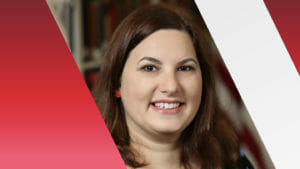
Given the prospect of looming Medicare insolvency, COVID-era waivers that made it easier for hospitals to discharge patients to skilled nursing and other post-acute settings should be revoked, Medicare expert Lisa Grabert and David Grabowski, professor of healthcare policy at Harvard Medical School, said Monday.
The authors recommended ending the use of such waivers once the public health emergency declaration expires, explaining that extra costs associated with their use have threatened Medicare’s Hospital Insurance Trust Fund through direct spending of Medicare Part A resources.
“The waiver of these post-acute care rules successfully eased overcrowding in STACHs (short-term acute care hospitals) during a period of acute need, but the question remains as to whether these waivers should be made permanent,” they wrote in a new Health Affairs blog. “It is likely that a PHE will occur again in the future, albeit perhaps of a different nature than COVID-19. It will be important for CMS to remain nimble and again allow for temporary waivers of certain Medicare reimbursement and coverage rules as quickly as possible.”
They noted that Congress and CMS had initially intended all of the waivers to be time-limited and tied them to the public health emergency. Providers, however, have rallied behind the waivers, noting their ability to smooth cooperation between acute and post-acute providers — and fill beds at a time when there was little need for many post-acute operators’ rehabilitative services.
The authors, also including Anil N. Makam, M.D., assistant professor in the Department of Medicine at the University of California, San Francisco, said the Centers for Medicare & Medicaid Services should make just one aspect of the waivers permanent: They propose regulators begin counting outpatient observation days in a hospital toward skilled nursing’s existing three-day stay requirement. CMS has waived that requirement under a pandemic-related 1135 waiver, providing temporary emergency coverage of SNF services without a qualifying hospital stay.
“We all felt strongly about counting observation days because we felt that it certainly helped with surge relief during the pandemic but that it is also something that should be addressed outside of the pandemic,” Grabert told McKnight’s Long-Term Care News Monday. “As authors, we certainly discussed the aspects of recognizing observation days from a patient perspective — the need to eliminate the potential for surprise billing.”
The Medicare Payment Advisory Commission (MedPAC) has previously supported an eligibility requirement that would allow up to two outpatient observation days to count toward the three-day stay criterion. It has noted beneficiaries are often surprised to learn that Medicare won’t cover a skilled nursing stay because their hospital stay was technically outpatient.
During the pandemic, the three-day stay waiver and similar measures for long-term acute care hospitals and home care providers allowed providers to take patients more quickly and free up hospital beds during surges. More than 15% of skilled nursing facility stays were covered in 2020 using the three-day stay waiver, and the authors called that an important finding regarding how a change in the three-day policy might change SNF use.
Grabert said counting observation days toward a required three-day could ultimately benefit the taxpayer “because it would likely incentivize more outpatient, as opposed to inpatient, care.”
“From a provider perspective, I think a policy change to include observation would increase post-discharge options, as there may be some hesitancy on behalf of discharge planners today to consider SNFs as a viable option if there is a fear of potential coverage denial,” she added.



